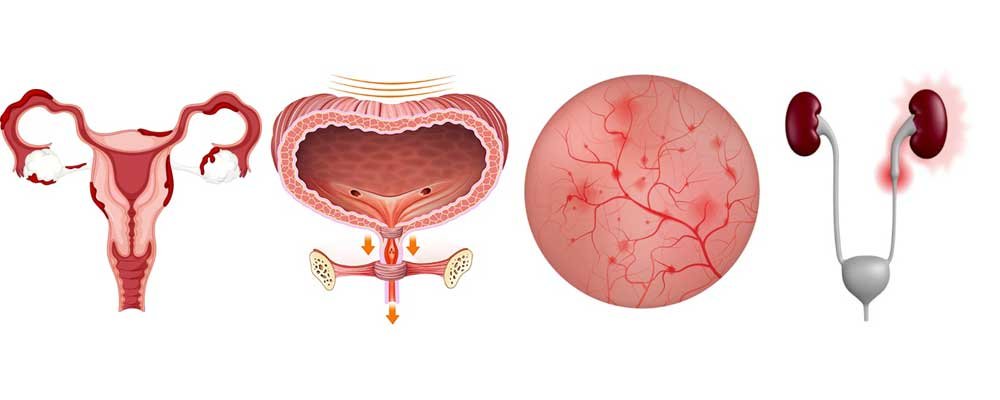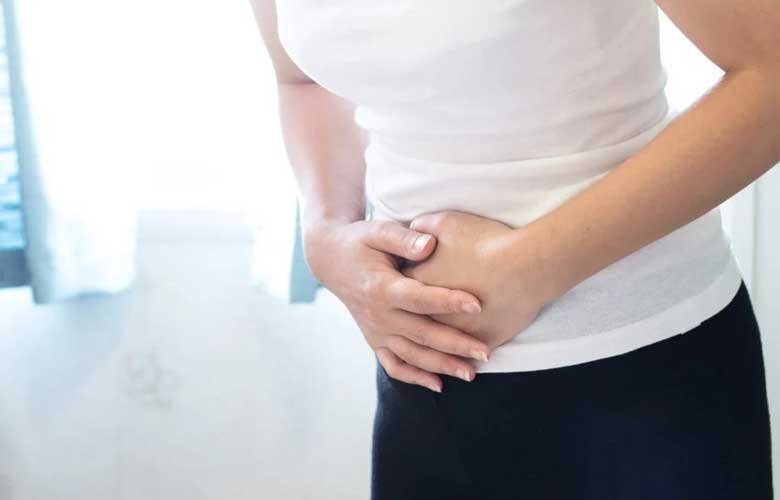Endometriosis is a chronic disease that affects countless women throughout the world. While it is commonly associated with reproductive health issues, its impact extends beyond the realm of fertility. Recent research has shed light on the significant influence endometriosis can have on urological functioning. In this blog post, we will delve into the lesser-known aspects of endometriosis and how it can affect the urinary system, bladder, and overall urological health.
Understanding Endometriosis
Before exploring its influence on urological functioning, let's briefly understand what endometriosis is. Endometriosis is a condition in which the tissue that normally lines the uterus, known as the endometrium, grows outside the uterus. This can lead to the formation of painful lesions or implants in various areas of the body, including the pelvic region.
Impact on Urological Functioning
Bladder Dysfunction
Endometriosis can directly affect the bladder, leading to symptoms such as frequent urination, urgency, and pain during urination. The presence of endometriotic implants near the bladder can cause inflammation and irritation, resulting in these urological symptoms.
Interstitial Cystitis
Endometriosis is closely associated with a condition called interstitial cystitis (IC), also known as painful bladder syndrome. IC is characterized by chronic bladder pain, urinary urgency, and frequency. Studies have shown a higher prevalence of IC among women with endometriosis, suggesting a potential link between the two conditions.
Ureteral Involvement
In severe cases of endometriosis, the condition can extend to the ureters, the tubes that connect the kidneys to the bladder. This can cause ureteral obstruction, leading to complications such as kidney damage and urinary tract infections. Prompt diagnosis and intervention are crucial in preventing long-term urological complications.
Pelvic Floor Dysfunction
Endometriosis can contribute to pelvic floor dysfunction, affecting the muscles, ligaments, and connective tissues that support the pelvic organs. This dysfunction can result in urinary incontinence, pelvic pain, and difficulty emptying the bladder effectively.

Preventive Aspects
- While endometriosis cannot be entirely prevented, early detection and intervention may help manage symptoms and prevent the condition from worsening.
- Awareness of the potential risk factors, such as family history, delayed childbirth, and certain lifestyle factors, can help women make informed decisions about their reproductive health.
- Maintaining a healthy lifestyle, including regular exercise, a balanced diet, and managing stress, may potentially reduce the risk of developing endometriosis.

Treatment Options
Pain Management
Over-the-counter pain relievers, such as nonsteroidal antiinflammatory drugs (NSAIDs), may help alleviate mild to moderate pain associated with endometriosis. Strong pain medications may be necessary for severe pain.
Hormonal Therapies
Hormonal treatments, such as oral contraceptives, progestins, or gonadotropin-releasing hormone (GnRH) agonists, can help regulate hormonal fluctuations, reduce the growth of endometrial tissue, and alleviate symptoms.
Surgery:
In cases where medication alone is insufficient, surgery may be considered. Two common surgical approaches are laparoscopy and laparotomy. Laparoscopic surgery involves the removal or destruction of endometrial implants, while laparotomy is a more invasive procedure reserved for severe cases.
Excision or Ablation
Excision surgery involves removing endometrial lesions completely, while ablation uses heat or a laser to destroy the tissue. Excision is generally considered more effective in providing long-term relief.
Assisted Reproductive Technologies (ART)
In cases where endometriosis affects fertility, ART techniques such as in vitro fertilization (IVF) may be recommended to increase the chances of conception.

It's important to note that the choice of treatment depends on various factors, including the severity of symptoms, desire for fertility, and individual patient preferences.
Remember, if you suspect you may have endometriosis or are experiencing urological symptoms associated with the condition, it is essential to consult with a Gynaecologist or a Urologist for proper evaluation and guidance.
Dr. Amit Goel is a Consultant Laparoscopic/ Robotic Urologist & Renal Transplant Surgeon. He has over 15 years of experience in successfully treating complex urological diseases. His expertise includes diagnosing & treating Kidney stones, prostate enlargement, prostate cancer, kidney cancer, bladder cancer & incontinence, male infertility & erectile dysfunction.
